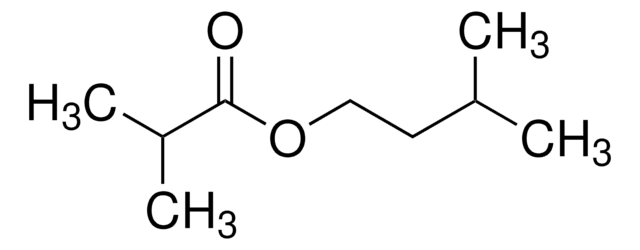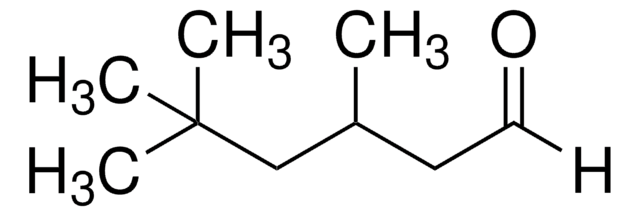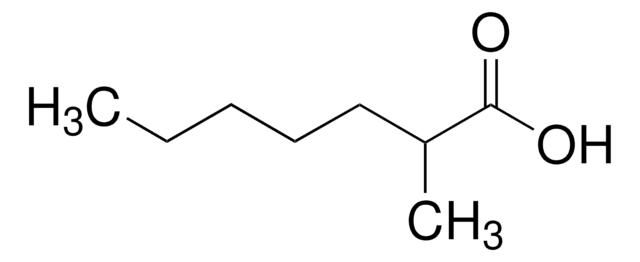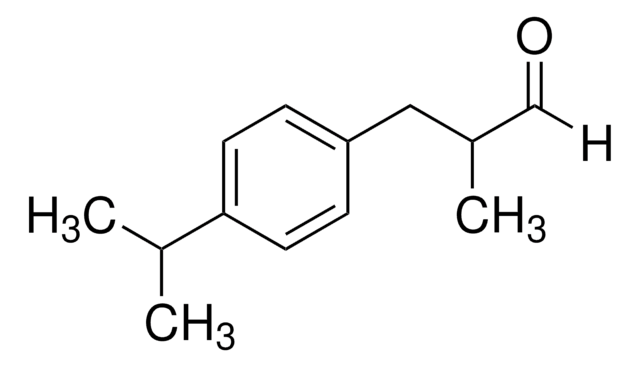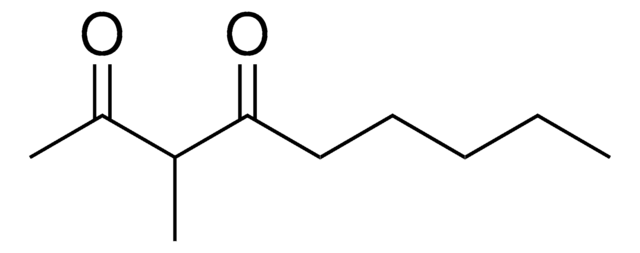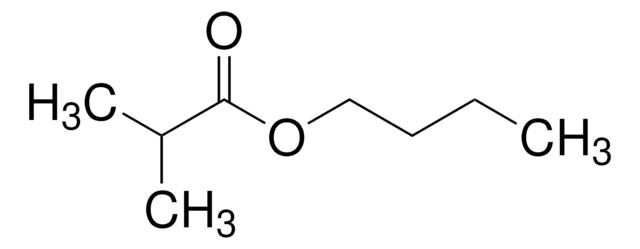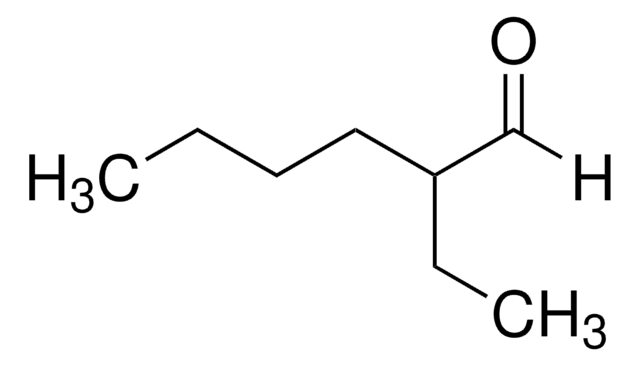W352403
3,5,5-Trimethylhexanal
≥95%, FG
Synonym(s):
Green hexanal
About This Item
Fragrance grade
Halal
Kosher
Recommended Products
biological source
synthetic
Quality Level
grade
FG
Fragrance grade
Halal
Kosher
Agency
follows IFRA guidelines
reg. compliance
EU Regulation 1223/2009
EU Regulation 1334/2008 & 178/2002
Assay
≥95%
refractive index
n20/D 1.421 (lit.)
bp
67-68 °C/2.5 mmHg (lit.)
density
0.817 g/mL at 25 °C (lit.)
application(s)
flavors and fragrances
Documentation
see Safety & Documentation for available documents
food allergen
no known allergens
fragrance allergen
no known allergens
Organoleptic
earthy
SMILES string
CC(CC=O)CC(C)(C)C
InChI
1S/C9H18O/c1-8(5-6-10)7-9(2,3)4/h6,8H,5,7H2,1-4H3
InChI key
WTPYRCJDOZVZON-UHFFFAOYSA-N
Looking for similar products? Visit Product Comparison Guide
Related Categories
General description
Application
- Analysis, occurrence and potential sensory significance of aliphatic aldehydes in white wines.: Culleré et al. (2011) explore the presence and sensory impact of aliphatic aldehydes, including 3,5,5-trimethylhexanal, in white wines. The study highlights the role of these compounds in contributing to the aroma and flavor profiles of wines, emphasizing their importance in food chemistry and sensory science (Culleré et al., 2011).
Signal Word
Warning
Hazard Statements
Precautionary Statements
Hazard Classifications
Aquatic Chronic 3 - Flam. Liq. 3 - Skin Irrit. 2 - Skin Sens. 1
Storage Class Code
3 - Flammable liquids
WGK
WGK 1
Flash Point(F)
93.2 °F - closed cup
Flash Point(C)
34 °C - closed cup
Personal Protective Equipment
Regulatory Listings
Regulatory Listings are mainly provided for chemical products. Only limited information can be provided here for non-chemical products. No entry means none of the components are listed. It is the user’s obligation to ensure the safe and legal use of the product.
FSL
Group 4: Flammable liquids
Type 2 petroleums
Hazardous rank III
Water insoluble liquid
ISHL Indicated Name
Substances Subject to be Indicated Names
ISHL Notified Names
Substances Subject to be Notified Names
JAN Code
W352403-VAR-K:
W352403-BULK-K:
W352403-BULK:
W352403-1KG:
W352403-100G-K:4548173978710
W352403-SAMPLE-K:
W352403-4KG-K:4548173978734
W352403-100G:
W352403-4KG:
W352403-1KG-K:4548173978727
W352403-SAMPLE:
Choose from one of the most recent versions:
Already Own This Product?
Find documentation for the products that you have recently purchased in the Document Library.
Our team of scientists has experience in all areas of research including Life Science, Material Science, Chemical Synthesis, Chromatography, Analytical and many others.
Contact Technical Service